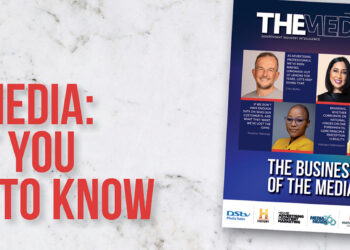South Africa’s Interactive Advertising Bureau (IAB) has made a submission to the department of health over its proposed draft regulations on food labelling and advertising.
“Unfortunately, the regulations are unduly onerous and flawed,” says Andrew Allison, the IAB’s head of regulatory. “However, we have made it clear in our submissions that the IAB is open to working with the department of health to find viable alternatives to set reasonable limits and exacting standards for self- or co-regulation”.
The health department wants to strictly regulate the advertising and marketing of unhealthy foods to school-going South African children, among other things.
The regulations, R429, is designed to tackle non-communicable diseases in children, including obesity, diabetes and heart disease. South Africa’s Medical Research Council has found a “rising tide of NCDs affecting the quality of life and increasing health-care expenses both at a personal level and at a country level”. It says “national surveillance suggests that these patterns of unhealthy lifestyle are already present in our children and youth” and suggests controlling this is a “race against time”.
But government’s proposed regulations have not found favour with the IAB’s more than 200 members that include online publishers, creative, media and digital agencies, brands and educators as members. They say while they laud the department’s commitment to tackle this threat, “the IAB joins other industry bodies in taking issue with the department’s attempts to regulate the marketing activities of the South African food and beverage industry”.
But there’s another issue where online advertising is concerned. Allison points out that if regulations are passed, South African children would be limited in their exposure to local brands marketing unhealthy foods and beverages but that when it comes to the online environment, they would continue to be fully exposed to the marketing of international competitors, creating an unfair bias against the South African Food and Beverage industry, and its supply chains.
“It’s also of great concern to the IAB that the regulations demonstrate an overall lack of understanding of the digital industry and the manner in which digital communications, transactions and interactions are transmitted and received. The digital industry and the very nature of digital communications are incredibly dynamic, fluid and complicated; for this reason, governments the world over are ill-equipped to effectively and efficiently regulate them,” Allison says.
Allison says the proposed regulations amount to an “unlawful limitation on the Constitutional freedom of commercial speech afforded to all the affected parties, which includes the entire IAB membership base”.
“The regulations just do not meet the criteria set out under Section 36 of our Constitution which puts forward that there must be a reasonable relation between the limitation and its purpose, as well as proper consideration given to less restrictive means to achieve its purpose,” he says.
The IAB believes “rigorous self-regulation by the advertising industry” is a viable alternative to criminalising advertising and marketing businesses, which may play a part in the transgression of the proposed regulation.
In its submission, the IAB South Africa has appealed to the department of health to conduct a full regulatory impact assessment and communicate the findings publicly as well as to engage with the affected industries in the form of public hearings.














